On the morning of November 17, continuing the 10th Session, the National Assembly worked in the hall to listen to the Presentation and Report on the examination of the Draft Resolution of the National Assembly on a number of specific and outstanding mechanisms and policies to make breakthroughs in education and training development.
Presenting the Report, Minister of Justice Nguyen Hai Ninh stated: After more than 10 years of implementing Resolution No. 29-NQ/TW, Vietnam's education has achieved many important achievements, but is facing a systemic crisis. "Bottlenecks" in institutions, human resources, finance and international integration are hindering breakthrough development, revealing the incompatibility between the strategic importance of education and the current administrative management mechanism.
Therefore, the issuance of a special Resolution of the National Assembly is an urgent requirement to clear the bottleneck, create a new legal corridor, strong enough to revive and develop breakthroughs in Vietnamese education in the coming period.
Use a unified set of textbooks
Institutionalizing Part III of Resolution 71-NQ/TW, the draft Resolution stipulates special and outstanding preferential policies for teachers and staff in educational institutions; grants authority to the Director of the Department of Education and Training in recruitment, transfer, and secondment to ensure unified management of human resources in the sector; at the same time, promulgates a mechanism to attract, promote, and develop high-quality human resources in teaching, research, and management.
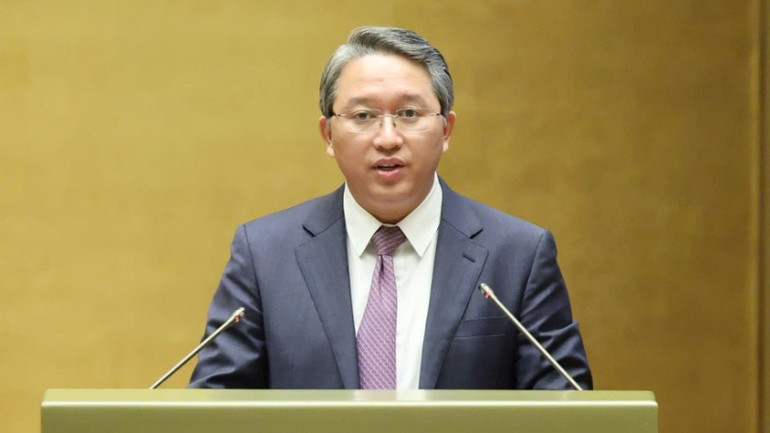
The draft Resolution also stipulates a mechanism to ensure comprehensive autonomy for higher education and vocational education institutions; innovate preschool, general education, university and continuing education programs; organize the unified use of a set of textbooks nationwide; build an open and interconnected education system, promote lifelong learning and a learning society.
Regarding the group of policies on science , technology and digital transformation in education, the draft Resolution stipulates the mechanism to promote comprehensive digital transformation in management, teaching, learning, and accreditation; develop smart education platforms and national education databases; promote cooperation between the State, schools, and enterprises in research, technology transfer, and development of high-quality human resources associated with science, technology, and innovation.
The draft Decree stipulates that the rate of state budget expenditure for education must reach at least 20% of total expenditure, ensuring the rate of development investment expenditure and giving priority to preschool, general education, and disadvantaged areas; promulgating financial mechanisms to encourage public-private cooperation and socialization; providing special incentives on land, taxes, and credit for public and non-profit educational institutions, ensuring fairness and sustainability in investment in education.
Notably, according to the Report, the current law does not allow the Ministry of Education and Training to decide on the use of a unified set of textbooks, leading to instability and social costs. Point b, Clause 2, Article 4 of the draft Resolution supplements this authority to ensure consistency, economy and efficiency.
At the same time, add Clause 5, Article 7 on free textbooks for students of general education institutions (completed by 2030) and free tuition and textbooks for National Defense and Security Education at universities and vocational education institutions.
Directly assign recruitment authority to the Director of the Department of Education and Training
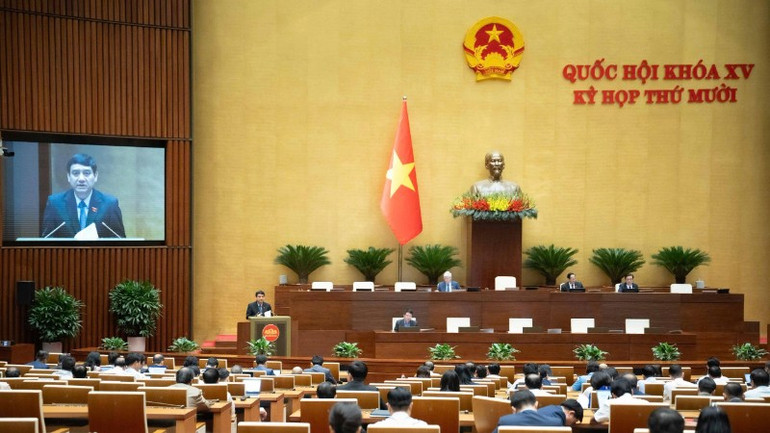
Regarding the management, recruitment and use of the teaching staff: Practice shows that the authority to manage, recruit and mobilize teachers is currently dispersed among many levels, causing overlap, locality and lack of flexibility. Clause 1, Article 3 of the draft Resolution stipulates that the Director of the Department of Education and Training is assigned to recruit, mobilize and transfer public preschool and general education teachers within the locality, overcoming the fragmentation, shortage and surplus of local teachers, ensuring unified management, effective use of human resources, appropriate to expertise and actual needs.
"The above regulations clearly demonstrate the spirit of promoting decentralization, delegation of power, and authorization in State management," the Minister stated.
The drafting of the Resolution is carried out according to the simplified procedures and order under the Law on Promulgation of Legal Documents, without requiring the preparation of a detailed Impact Assessment Report on resources.
Specify the monitoring and inspection mechanism in the recruitment, mobilization and transfer of educational personnel.
In his review report, Chairman of the National Assembly's Committee on Culture and Society Nguyen Dac Vinh said: The Committee agrees with the Government's proposal to submit the Resolution to the National Assembly for promulgation according to the shortened procedures. The draft Resolution has basically institutionalized the spirit of Resolution 71; established a number of mechanisms and policies to create important premises for implementing the standardization and modernization of education and training in the direction of integration. However, it is recommended to continue to carefully review to fully institutionalize the contents of Resolution 71.
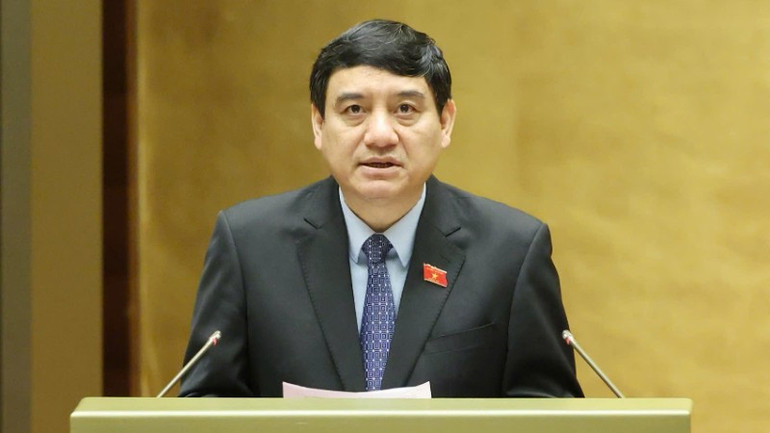
Regarding the regulations on the authority of the Director of the Department of Education and Training in mobilizing, transferring, seconding, arranging, assigning, and changing job positions for teachers, educational institution managers, and staff in public educational institutions related to the scope of 2 or more commune-level administrative units at Point a, Clause 1, the Committee believes that it is not strict, it can be understood as "2 communes" in the same province or belonging to 2 provinces; and the Director of the Department of Education and Training of a province cannot exercise this authority over educational personnel of a locality belonging to another province. Therefore, it is recommended to consider adjusting and clearly regulating in the direction between commune-level administrative units in the same province.
At the same time, it is recommended to consider specifying the monitoring, inspection and periodic reporting mechanism to ensure transparency and fairness in the recruitment, mobilization and transfer of educational personnel, avoiding the risk of negativity and localism; continue to research and regulate decentralization and authorization for public educational institutions in the province that meet the conditions and capacity to implement according to regulations to recruit and receive educational personnel.
Regarding the investment incentive mechanism for education and training (Article 6), the Committee agrees with the provisions on the authority of the Provincial People's Council to decide and organize implementation according to the shortened process (prescribed by the Government) on supplementing medium-term investment projects in the field of education and training, on supplementing annual land use plans at the commune level as prescribed in Clause 1; agrees with the provisions on the mechanism, policies and responsibilities of the Provincial People's Committee as prescribed in Clause 2.
However, it is recommended that the Government consider issuing detailed regulations on simplified procedures while still ensuring the value of land use rights and information disclosure procedures, ensuring transparency.
Source: https://nhandan.vn/tao-co-che-chinh-sach-vuot-troi-thuc-hien-dot-pha-phat-trien-giao-duc-va-dao-tao-post923614.html



![[Photo] General Secretary To Lam and National Assembly Chairman Tran Thanh Man attend the 80th Anniversary of the Traditional Day of the Vietnamese Inspection Sector](https://vphoto.vietnam.vn/thumb/1200x675/vietnam/resource/IMAGE/2025/11/17/1763356362984_a2-bnd-7940-3561-jpg.webp)






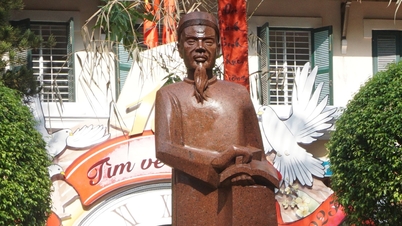
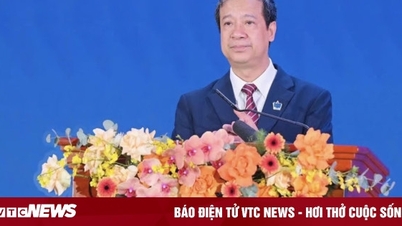

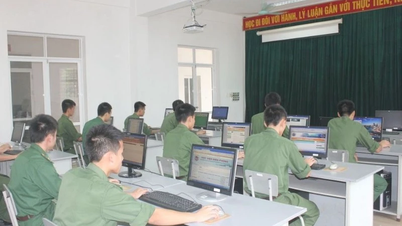
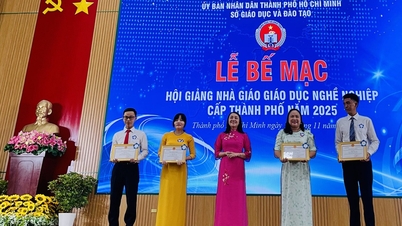

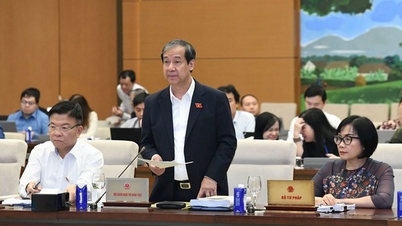






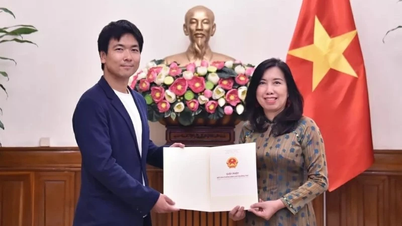
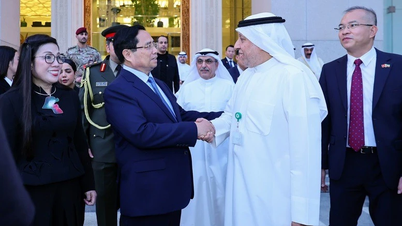
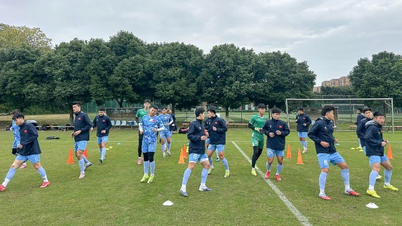























































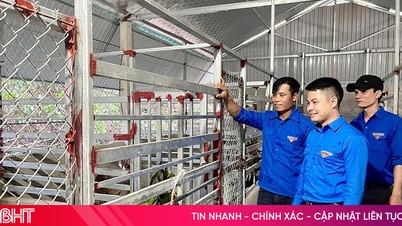



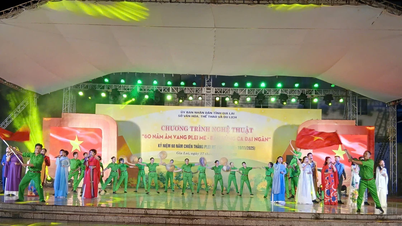



















Comment (0)